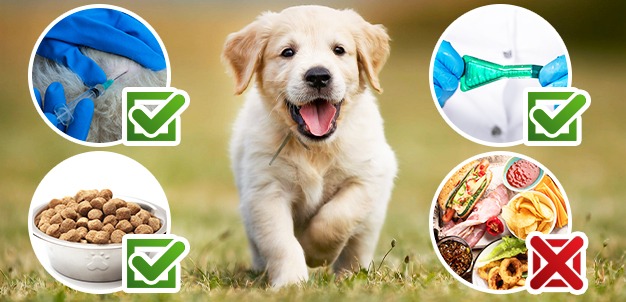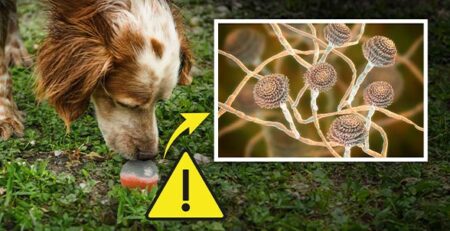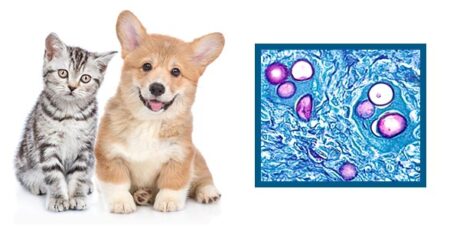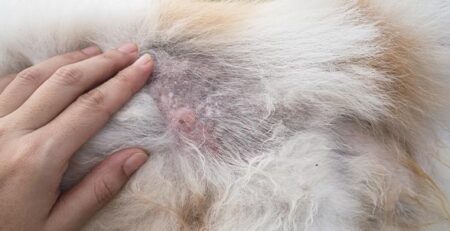Table of Contents
Gastroenteritis in dogs: viral or bacterial, the first symptom is diarrhea.
Gastroenteritis in dogs: a term for different diseases affecting the dog’s gastro-intestinal system.
What they have in common are the symptoms but what differentiates them are the triggers.
In fact, while the causes of intestinal inflammation can be many, the symptoms are similar because the intestines essentially always respond in the same way.
What symptoms does gastroenteritis give in dogs?
Generally speaking, the main symptom of gastrointestinal diseases is
diarrhea
.
So, stools change color and consistency, and in severe cases, the presence of blood may be found: in these cases we speak of
hemorrhagic gastroenteritis.
In dogs with continuous or severe diarrhea, vomiting, and loss of appetite or thirst, the risk of dehydration and infection increases.
Other common symptoms are abdominal pain, drowsiness and fever.
What causes gastroenteritis in dogs?
Common causes that cause digestive tract problems in dogs are:
- viral infections (canine parvovirus)
- bacterial infections
- Allergies and hypersensitivities to certain foods
- Parasites (roundworms, hookworms, whipworms and tapeworms)
- Liver, pancreas, adrenal gland, prostate and kidney diseases
Why do puppies get viral gastroenteritis?
Caused by the canine parvovirus against which dogs are usually vaccinated, infectious or viral gastroenteritis is very contagious and can lead to dog death, especially puppies.
Canine parvovirosis infection takes place through contact between a dog’s mouth and feces or objects contaminated with the virus, usually in an outdoor environment: for example, a park frequented by many dogs or another environment where dogs socialize.
The best way to ensure your dog is as protected as possible is to rely on your Veterinarian for the appropriate course of vaccinations.
It is precisely the veterinarian who will tell you, especially if your dog is a puppy, the right time to start taking him out of the house and introducing him to other dogs, without running the risk of contracting the infection.
Bacterial dog gastroenteritis
It is caused by pathogenic bacteria (specifically escherichia coli or salmonella) and is transmitted through contaminated water, undercooked or raw meat and fish, unpasteurized milk, and dairy products.
Once the dog has ingested food contaminated with pathogenic bacteria, they reach the intestines where they begin to grow.
Well, then, to prevent your dog from getting sick, keep him away from the garbage and above all, avoid letting him eat your food, leftovers or scraps.
Dog gastroenteritis from parasites
Also in cases of infestations with giardia, roundworms, hookworms, whipworms, tapeworms, and coccidia, the most common symptoms are diarrhea and vomiting (even with the presence of blood), foul-smelling breath, belly bloating, increased appetite followed by slimming, dehydration, and anemia.
Finally, as the general condition worsens, death of the animal may also occur in the most severe cases.
Here, then, is where anti-parasite prophylaxis, often underestimated, takes on a crucial role.
How to treat a dog’s gastroenteritis: what treatment?
If your dog has all or some of the symptoms we have listed, you should visit your local veterinarian as soon as possible and with a stool sample.
The veterinarian will assess the extent and cause of the problem with the help of specific examinations.
Treatment, both symptomatic and supportive, includes:
- Antibiotics, which are used to prevent complications brought about by secondary bacterial infections
- Antiemetics, to stop vomiting and prevent dehydration
- Intravenous fluid therapy to replenish lost fluids
What to feed the dog with gastroenteritis?
Feeding should be stopped orally as long as the dog vomits to avoid continued stimulation.
After 18 to 24 hours have passed since the vomiting, you can put the dog on a light diet that is easily digested, feeding it in small portions and several times throughout the day.
At La Veterinaria Clinic, our Staff Doctors are always available for a complete check-up of your dog: contact us to check your puppy’s health status and to set up the vaccine prophylaxis plan.
Also, remember that in case of need and urgency, Clinica La Veterinaria is always open h24 every day including holidays and with First Aid service from 8 pm to 8 am.
For the joy of seeing them HAPPY











